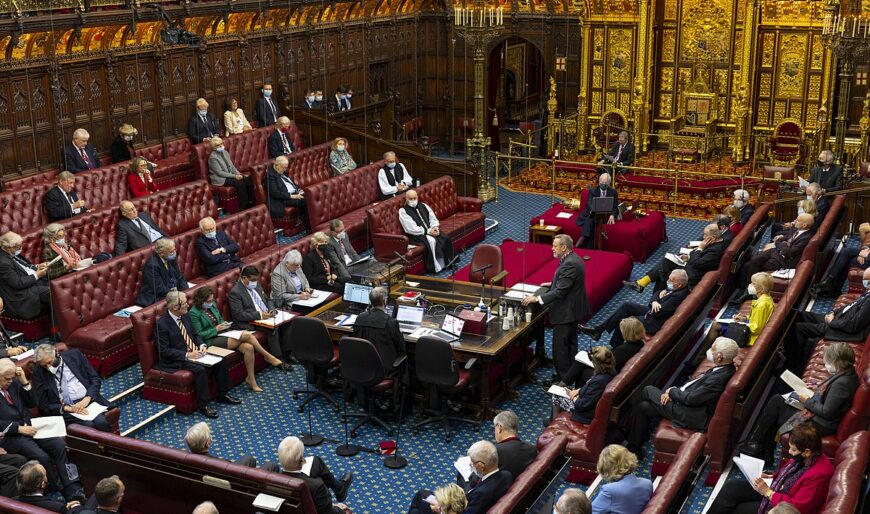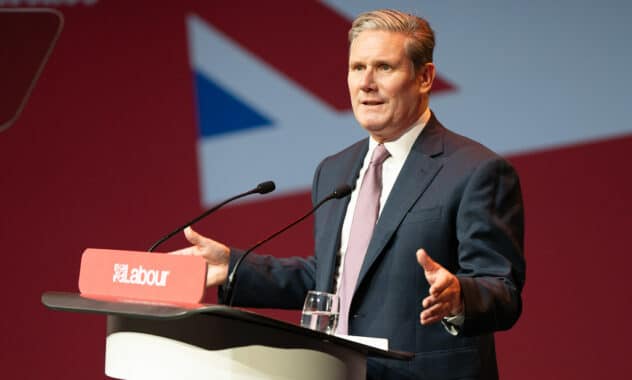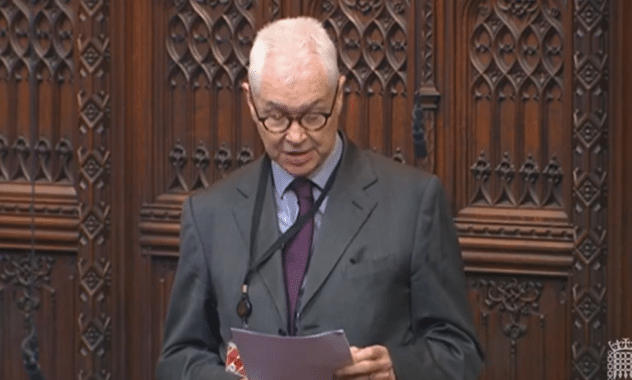A ‘clear breach’ in the rule of law: Lord John Hendy on the Fire and Rescue MSL regulations [video]
Speech made to the House of Lords on Tuesday 19th March

Watch the video on YouTube here:
Transcript (from Hansard)
“My Lords, in the debate on the strikes/minimum service legislation and the regulations made under it, the rationale for the right to strike sometimes gets overlooked. I will cite for your Lordships three very short passages, not from Marx and Engels or Sidney and Beatrice Webb but from the highest courts in the United Kingdom and Canada.
First, I cite a case of the Judicial Committee of the House of Lords from 1942, Crofter Hand Woven Harris Tweed v Veitch, in which Lord Wright said:
“Where the rights of labour are concerned the rights of the employer are conditioned by the rights of men to give or withhold their services. The right of workmen to strike is an essential element in the principle of collective bargaining”.
The second authority that I want to put before your Lordships is a case in the Supreme Court of Canada from 2015, Saskatchewan Federation of Labour v Saskatchewan. In it, the Chief Justice cited an earlier case in the Ontario High Court, with approval, in which it was said that
“freedom of association contains a sanction that can convince an employer to recognize the workers’ representatives and bargain effectively with them. That sanction is the freedom to strike. By the exercise of that freedom the workers, through their union, have the power to convince an employer to recognize the union and to bargain with it … If that sanction is removed the freedom is valueless because there is no effective means to force an employer to recognize the workers’ representatives and bargain with them. When that happens the raison d’être for workers to organize themselves into a union is gone. Thus I think that the removal of the freedom to strike renders the freedom to organize a hollow thing”. Finally, in a later passage, the Chief Justice said:
“The right to strike is essential to realizing these values and objectives through a collective bargaining process because it permits workers to withdraw their labour in concert when collective bargaining reaches an impasse. Through a strike, workers come together to participate directly in the process of determining their wages, working conditions and the rules that will govern their working lives … The ability to strike thereby allows workers, through collective action, to refuse to work under imposed terms and conditions. This collective action at the moment of impasse is an affirmation of the dignity and autonomy of employees in their working lives”.
As your Lordships well know, collective bargaining operates successfully in the fire service, including in relation to incidents that may occur when strikes are called. Those issues are negotiated, as are terms and conditions and—most recently, of course—pay, but the effect of these regulations will be to remove the right to strike for a large proportion of the staff of the fire and rescue service. For example, as the Minister pointed out, 73% of appliances and crew must be available, as on a non-strike day. In my local fire station, there are three appliances, so the application of the 73% rule means that all three must be present, available and fully crewed on any strike day.
In addition to that, 100% of control room staff must be available, as must 100% of the staff whose job it is to work national resilience assets such as high-volume pumps and, I think, aerial ladder platforms. The effect of these regulations will be to diminish the bargaining power of the fire and rescue service’s workers and union, which will result in worsening terms and conditions and will lead to difficulty in retention and recruitment.
The United Kingdom has ratified ILO Conventions 87 and 98, which protect the right to organise and to bargain collectively. They are two of the five fundamental conventions of the ILO, the importance of which the UK recently reasserted in the trade and co-operation agreement it reached with the European Union when leaving. Under Article 387(2) of that agreement, the obligation on the EU and the UK is as follows:
“A Party shall not weaken or reduce, in a manner affecting trade or investment between the Parties, its labour and social levels of protection below the levels in place at the end of the transition period, including by failing to effectively enforce its law and standards”.
The words “labour and social levels of protection” are defined in Article 386 as including the fundamental ILO conventions. Under Article 399(2), “each Party commits to respecting, promoting and effectively implementing the internationally recognised core labour standards, as defined in the fundamental ILO Conventions”, which it then summarises.
It is clear that these regulations will lead the United Kingdom to be in breach of its international legal obligations. It is true that the ILO jurisprudence permits a state to adopt minimum service legislation, but that is on one condition, which has a number of aspects. First, the minimum service level must be the subject of negotiation between the social partners; secondly, the fulfilment of that minimum level of service in any particular firm or enterprise must be the subject of negotiations between the unions and the particular employer; and thirdly, in the event of disagreement, there must be an established method of resort to either judicial or arbitral resolution of the failure to agree. That applies in all the countries in western Europe.
There is a fourth element to it. Where workers are deprived of the right to strike, such as, in our case, control-room staff, compensatory measures must be adopted by the state which bars the right to strike. The compensatory measures are that the ability to seek arbitration must be speedy, binding, independent and impartial. None of those conditions is available under these regulations or indeed under the Act itself, so I ask the Minister, how can the UK be said to uphold the rule of law in the face of what is a clear breach? How will the Government explain this discrepancy to the European Union?”







